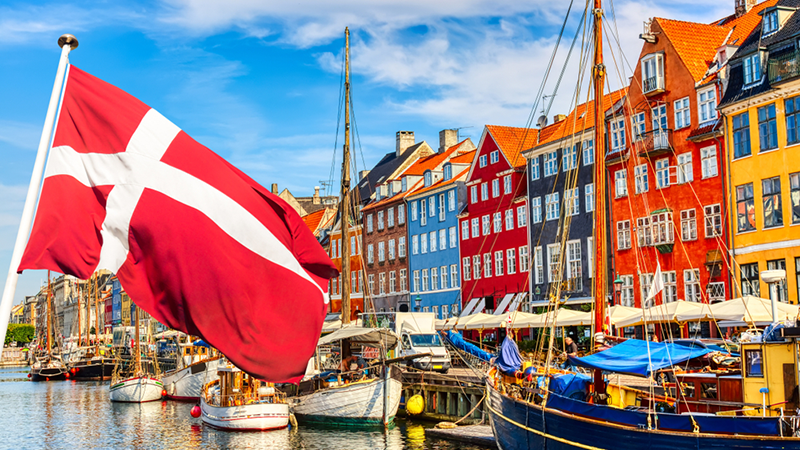United States-Egypt Tax Treaty
The United States–Egypt Income Tax Treaty plays a crucial role in facilitating cross-border business operations and investment by preventing double...

With its stable democracy, pro-business regulations, and expanding trade networks, Costa Rica has become one of Latin America's most attractive destinations for foreign investors. As regional headquarters for tech giants, a manufacturing hub for life sciences, and a preferred jurisdiction for nearshoring, Costa Rica offers a strategic blend of innovation, sustainability, and market access.
On this page
Opportunities | Political and Economic | Corporate Taxes | Business Culture
 While Costa Rica is known for its investor-friendly climate, foreign companies should be aware of several structural and administrative challenges when establishing operations.
While Costa Rica is known for its investor-friendly climate, foreign companies should be aware of several structural and administrative challenges when establishing operations.
Foreign investors must navigate a regulatory landscape that includes multiple governmental agencies such as the Ministry of Economy, Industry, and Commerce (MEIC), the Costa Rican Investment Promotion Agency (CINDE), and the Directorate General of Taxation (DGT). Although the country promotes transparency and digital procedures, bureaucratic delays and overlapping requirements remain common in licensing and permitting processes.
Costa Rican labor laws protect workers and are strictly regulated by the Labor Code. Employers must provide an Aguinaldo bonus, 12 working days of mandatory annual vacation, and contributions to the Costa Rican Social Security Fund (CAJAS) of 26.67% on total gross wages. Hiring and firing practices are subject to strict oversight.
Costa Rican labor laws protect workers and are strictly regulated by the Labor Code. Employers must provide a Christmas bonus, 12 working days of mandatory annual vacation, and contributions to the Costa Rican Social Security Fund (CAJAS) of 26.67% on total gross wages. Hiring and firing practices are subject to strict oversight.
While the country boasts reliable telecommunications and a modern airport hub (Juan Santamaría International Airport), transportation and logistics are often hindered by aging roadways and congestion. Electricity is renewable and stable, but energy costs are higher than in neighboring countries.
Costa Rica's business environment offers several strategic advantages for foreign investors. From a thriving tech ecosystem to green manufacturing incentives, the country has positioned itself as a competitive destination in Central America.
Costa Rica is one of Latin America’s top technology hubs, especially in software development, IT services, and digital technologies. The country hosts more than 400 multinational companies in advanced manufacturing and services, with many operating innovation and R&D centers. The government actively promotes the digital economy and has developed a national strategy for smart manufacturing and AI integration.
Costa Rica has diversified far beyond agriculture, with top-performing industries including life sciences, medical devices, electronics, renewable energy, and agritech. In fact, it is the second-largest exporter of medical devices in Latin America, a sector that benefits from robust quality controls, skilled labor, and tax incentives in Free Trade Zones (FTZs).
The clean energy sector also continues to grow, as nearly 99% of Costa Rica’s electricity is generated from renewable sources. This makes it a desirable destination for sustainability-focused manufacturers and ESG-driven investors.
Costa Rica maintains a strong network of free trade agreements (FTAs) with European Free Trade Association (CAFTA-DR) Canada, Caricom, Central America, Chile, China, Korea, Ecuador, Mexico, WTO, Panama, Peru, United Kingdom (AACRU), Dominican Republic, Singapore, European Union (AACUE) and United Arab Emirates. It also has investment agreements with some Mercosur countries such as Argentina, Chile, and Paraguay.
Foreign investors looking to establish a long-term presence in Costa Rica can apply for the Investor Residency Visa (Residencia por Inversión). This immigration category is available to individuals who invest a minimum of USD 150,000 in local assets such as real estate, Costa Rican companies, or government-approved projects. The visa grants temporary residency for two years, with the option to renew and eventually qualify for permanent residency after three years. Citizenship may be available after seven years of legal residency.
To qualify, applicants must present proof of the qualifying investment, a valid passport, a clean criminal record, and register with the national social security system. Costa Rica’s stable political environment, pro-business legal framework, and high quality of life make it an increasingly attractive destination for U.S. investors seeking both lifestyle and financial returns.
Costa Rica offers an exceptional balance of political stability, economic openness, and strategic geography. It ranks among the safest and most democratic countries in Latin America, providing a predictable legal environment for long-term investment.
The Trade Zone Regime offers significant tax benefits, including exemptions from corporate income tax, import duties, and VAT for eligible companies. This has made the country particularly appealing for high-tech, life sciences, and logistics sectors.

Population: 5.27 million inhabitants
Language: Spanish
Currency: Costa Rican Colón (CRC) and US dollars are accepted in the tourism and real estate sectors.
Political System: Costa Rica operates under a democratic republic with a presidential system, recognized as one of the most stable democracies in Latin America. The country holds free and transparent elections every four years, and its system includes strong checks and balances between the executive, legislative, and judicial branches.
As of 2025, the President of Costa Rica is Rodrigo Chaves Robles, elected in 2022. His administration has focused on:
Promoting nearshoring and tech innovation in line with global business trends.
GDP per Capita (2024): Approximately USD 19,100, reflecting the country's upper-middle-income status, and growth is projected to remain strong at about 4% for 2025, particularly in the construction and manufacturing sectors.
Foreign investors exploring opportunities for doing business in Costa Rica benefit from a legal framework that ensures non-discriminatory treatment, strong protections for private property, and access to international arbitration. As of 2024–2025, Costa Rica continues to position itself as a pro-investment jurisdiction within Latin America.
The country offers one of the most competitive Free Trade Zones (FTZ) regimes in the region. Qualified companies benefit from:
Costa Rica is a signatory to the International Centre for Settlement of Investment Disputes (ICSID) and recognizes the New York Convention on the enforcement of foreign arbitral awards. Investors can choose arbitration centers such as:
Costa Rica maintains an open and liberal foreign investment regime. In general, foreign investors are not required to obtain prior government approval to invest in the country. This policy facilitates a streamlined entry process for foreign capital, promoting economic growth and diversification.
However, specific sectors are subject to regulatory oversight and may require additional approvals or restrictions on foreign participation. These sectors include:
These exceptions are designed to protect national interests and ensure compliance with sector-specific regulations.
Businesses in Costa Rica are subject to various taxes, each with its own corporate tax rates and calculation methods. The corporate income tax rate is set at 30%, although certain industries may qualify for lower rates or tax incentives from the government.
Additionally, the value-added tax (VAT) rate is 13%, but it can be reduced in specific situations.
Companies must also navigate property tax rates, local taxes, and various fees, which can vary depending on the business's location and industry.

The tax system in Costa Rica does not provide for foreign tax credits. However, there exists an exception for taxpayers classified as non-qualified entities. These taxpayers may receive a credit for any foreign-source passive income by applying the equivalent tax that was withheld or paid abroad against the corresponding Costa Rican tax on the same income.
Entities in the Free Trade Zone can avoid several taxes. These include import duties on goods, income tax, VAT, export tax, selective consumption tax, real estate transfer tax, and withholding tax on payments sent abroad.
Since 2015, the World Trade Organization (WTO) has allowed manufacturing companies to join the Free Trade Zone Regime, whether they sell their products in Costa Rica or abroad, if they meet specific requirements. Law 9689/2019 expanded this rule to service companies, letting them sell their services both inside and outside the country without limits.
Currently, new regulations are being discussed to apply the changes introduced by Law 9689/2019 to implement the new rules introduced by Law 9689/2019.
As of 2025, Costa Rica imposes WHT on various payments to non-residents, with rates varying based on the nature of the payment:
Dividends: 15% WHT applies to dividends distributed to non-resident shareholders.
Interest: Interest payments to non-residents are generally subject to a 15% WHT. However, a reduced rate of 5.5% may apply to interest paid to foreign financial institutions under specific conditions.
Royalties and Technical Assistance: Payments for the use of intellectual property, such as patents, trademarks, and technical assistance, are subject to a 25% WHT.
In Costa Rican business environments, personal relationships, trust, and respect are highly valued, mirroring the cultural concept of “Pura Vida,” which signifies a laid-back yet genuine approach to life and work. Business meetings typically begin with polite conversation to establish rapport before transitioning to formal discussions. Therefore, it is important to be patient and maintain a friendly attitude.
Costa Rican business culture places a high value on respect, courtesy, and relationship-building. Formal greetings with a handshake and eye contact are common, and using professional titles is appreciated. Building trust through face-to-face meetings is essential before finalizing agreements. Avoid aggressive sales tactics; instead, focus on mutual benefit and long-term partnerships.
In Costa Rican business settings, punctuality is respected but tends to be somewhat flexible. Meetings may not always start exactly on time, and a delay of 10 to 15 minutes is generally tolerated. This relaxed approach reflects the broader cultural value of building personal relationships before rushing into business. However, arriving on time is still considered professional and shows respect.
Costa Rica’s market favors personal connections and a collaborative approach. Networking through local chambers of commerce or business groups can provide valuable market intelligence and foster trust. Understanding regional differences within Costa Rica, such as the more formal business climate in San José versus other regions is beneficial.
In urban centers like San José, taxis and buses are common. Traffic congestion can be significant during peak hours, so plan meetings accordingly. For intercity travel, buses are reliable and affordable, while domestic flights and car rentals offer more flexibility for business trips.
Business communication typically relies on formal emails, phone calls, and in-person meetings. Spanish is the official language, but English is widely spoken in business circles, especially in multinational companies. Written documentation is important to support verbal agreements.
For business lunches in Costa Rica’s capital, reputable venues include Restaurante Grano de Oro, known for its upscale Costa Rican cuisine, and Silvestre, which offers a fine dining atmosphere suitable for professional meetings.
San José offers several quality hotels favored by business travelers, such as the Costa Rica Marriott Hotel Hacienda Belen, Hotel Real InterContinental, and Hilton. These hotels provide business facilities, conference rooms, and easy access to commercial districts.
The United States Embassy in Costa Rica is in San José and serves as a key resource for American investors, business professionals, and citizens operating in the country. It provides support with visa services, legal guidance, emergency assistance, and commercial relations.
For Costa Rican citizens or companies seeking to do business in the United States, the Embassy also offers resources through its Commercial Section, helping facilitate bilateral trade and investment initiatives.

The United States–Egypt Income Tax Treaty plays a crucial role in facilitating cross-border business operations and investment by preventing double...

Costa Rica is characterized by having a solid labor framework, designed to guarantee fair working relationships and protect the rights of working...

The United States and Denmark have established a tax treaty to promote economic collaboration, prevent double taxation, and facilitate cross-border...